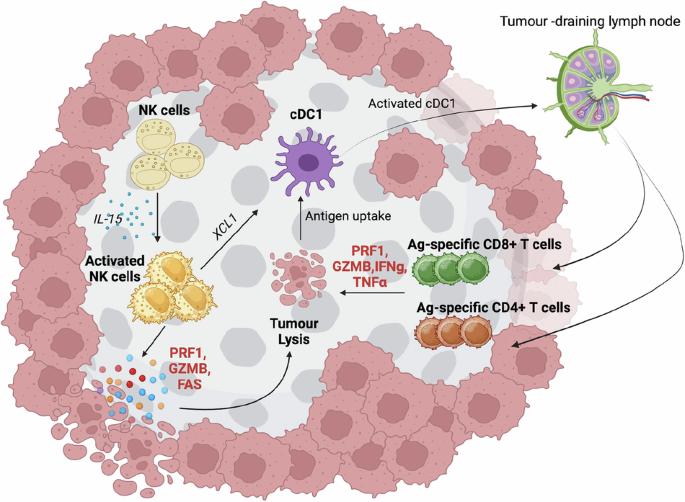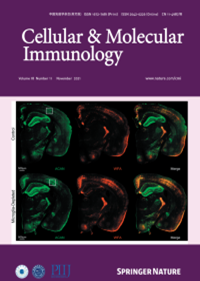Adjusting the scope of natural killer cells in cancer therapy
IF 19.8
1区 医学
Q1 IMMUNOLOGY
引用次数: 0
Abstract
Natural killer (NK) cells have evolved to detect abnormalities in tissues arising from infection with pathogens, genomic damage, or transformation and respond rapidly to the production of potent proinflammatory and cytolytic mediators. While this acute proinflammatory response is highly efficient at orchestrating sterilizing immunity to pathogens in a matter of days, cellular transformation often avoids the innate detection mechanisms of NK cells. When cellular transformation results in malignancy, tumor cells and/or the tumor microenvironment can evolve additional mechanisms to circumvent NK cell responses, and cancer is now a dominant disease burden worldwide. Here, we review recent advances in our understanding of the combined relationship between malignancies and natural killer (NK) cells, learn from recent clinical efforts in therapeutically targeting natural killer (NK) cells in cancer and outline some emerging therapeutic concepts that aim to improve the innate immune response against cancer.

调整自然杀伤细胞在癌症治疗中的作用范围。
自然杀伤细胞(NK)已经进化到能够检测由病原体感染、基因组损伤或转化引起的组织异常,并对强效促炎和细胞溶解介质的产生迅速作出反应。虽然这种急性促炎反应在几天内就能高效地协调对病原体的消毒免疫,但细胞转化通常会避免NK细胞的先天检测机制。当细胞转化导致恶性肿瘤时,肿瘤细胞和/或肿瘤微环境可以进化出额外的机制来规避NK细胞的反应,癌症现在是世界范围内的主要疾病负担。在这里,我们回顾了恶性肿瘤与自然杀伤(NK)细胞之间的综合关系的最新进展,从最近的临床研究中学习治疗癌症中的自然杀伤(NK)细胞,并概述了一些新兴的治疗概念,旨在提高对癌症的先天免疫反应。
本文章由计算机程序翻译,如有差异,请以英文原文为准。
求助全文
约1分钟内获得全文
求助全文
来源期刊
CiteScore
31.20
自引率
1.20%
发文量
903
审稿时长
1 months
期刊介绍:
Cellular & Molecular Immunology, a monthly journal from the Chinese Society of Immunology and the University of Science and Technology of China, serves as a comprehensive platform covering both basic immunology research and clinical applications. The journal publishes a variety of article types, including Articles, Review Articles, Mini Reviews, and Short Communications, focusing on diverse aspects of cellular and molecular immunology.

 求助内容:
求助内容: 应助结果提醒方式:
应助结果提醒方式:


